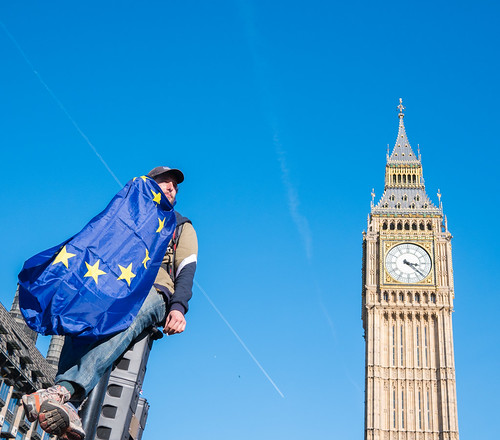by John Q on April 10, 2017
The other day my incoming email included an invitation from an Olla Galal, special issue developer at Hindawi publishers, to be the Lead Guest Editor for a Special Issue of Occupational Therapy International. Nothing too surprising in that, although my knowledge of occupational therapy would barely extend to a paraphrase of the name. I’m always getting invitations like this, and while I had the impression that Hindawi was a cut above the kind of predatory publishing house that does this kind of thing, I wasn’t too sure. (I have received previous invitations of this kind from them, but in fields where I could at least be a plausible candidate.
What made me pay attention was this
In June 2016, Wiley and Hindawi entered into a new publishing partnership that converted nine Wiley subscription journals into Open Access titles. The journals will be published under both the Wiley and Hindawi brands and distributed through Hindawi’s online platform
So, if this is accurate, I could become a guest editor for a Wiley journal in a field in which I am totally unqualified. More seriously, authors of papers in the old version of Occupational Therapy International “very well respected in its field with an impact factor of 0.683” according to Olla Galal, will now be associated with the new one.
Having got this far, I thought I should check Beall’s list of predatory journals, only to discover that it went dark on 17 January* for unexplained reasons. This is certainly depressing. It seems that even supposedly reputable academic publishers are now engaged, with only the fig leaf of a “partnership”, in seriously predatory behavior. How long before we see them pandering to the demand for “alternative fact” journals to give proper credibility to creationism, climate science denial, antivax and so on, if they are not already?
* Only a couple of days before Trump’s inauguration. Coincidence?
by Chris Bertram on April 9, 2017
Political philosophers have been arguing about equality for a very long time. We’ve argued about whether equality is a fundamental value or whether what matters is better captured by a focus on priority or sufficiency. We’ve argued about whether egalitarians should focus on securing equal amounts of something or on assuring people that they stand in relationships of equality of status toward one another. We’ve argued about the currency of egalitarian justice, and whether we should assess equality in terms of welfare, resources, opportunity for welfare or “advantage”. Luck egalitarians have argued that people should be rendered equal with respect to their unchosen circumstances but that inequalities that result from choices people freely are ok. All of these are arguments within the egalitarian camp.
So it is frustrating [to read a paper](http://www.nature.com/articles/s41562-017-0082) in *Nature*, written by some psychologists from the Pinker/Haidt school of public pontificating that claims that people don’t care about equality but about “fairness”, where the inequalities that people tolerate turn out to be (a) inequalities in money and (b) inequalities that result from choices people make. Nobody working in poltical philosophy thinks that inequalities in money matter fundamentally, and lots of people think that the value of equality, properly understood, not only allows but *requires* differences in outcome that result from choice. There’s one reference to Rawls in the paper (simply to mention the veil of ignorance) and one of Frankfurt’s sufficiency view, but Dworkin, Cohen, Sen, Anderson, Arneson et al are entirely absent. Perhaps *Nature* needs to pick its peer reviewers from a wider pool.
by Chris Bertram on April 9, 2017
by John Holbo on April 8, 2017
Live performances often don’t translate well to the medium of tiny YouTube videos … but: [click to continue…]
by John Holbo on April 8, 2017
I don’t have much to say; perhaps you do. The hell of it is (as several commentators have noted): it doesn’t seem like a distinctively Trumpish response – fire off missiles, let God sort ’em out. That bit seems as American as apple pie, and President Clinton might well have done the same. The Trumpish part is: willingness to bear the expense of Tomahawks, plus the imponderable downside risks such action entail; plus unwillingness to accept any Syrian refugees – comparatively simple, easy, open, safe, hence morally logical as the latter course of action would seem to be.
The attitude that you can mix mandatory harm-infliction with humanitarianism is less baneful than the attitude that you must do only harm, by way of achieving good ends. But neither attitude is what I would call sane.
Do pundits take some hypocritic foreign policy oath before they are allowed to opine: first, do some harm? Literally no one thinks Trump has any plan for improving the situation in Syria. That would be crazy. Why would you be heartened to see someone blowing things up without any plan? Why would the sight of huge gouts of American hellfire ever seem like a heuristic indicator of increased human welfare?
by John Q on April 5, 2017
One of the reasons I like blogging and opinion writing is that I’m better at thinking up ideas than at the hard work needed to turn them into properly researched journal articles, which is the core business of being an academic. So, it’s great when an idea I’ve floated in a fairly half-baked form in a blog or magazine article gets cited in a real journal article. Even better when it’s a colleague or, in this case, former colleague who cites me.
James Laurenceson, formerly of UQ and now Deputy Director of the Australia-China Relations Institute at UTS, has an article just out in the Australian Journal of International Affairs (paywalled, unfortunately, but well reading if you can get access), on Economics and freedom of navigation in East Asia, which cites a short piece I wrote last year and reproduced here. My key points were
* Contrary to many claims, China has no interest in blocking trade in the South China Sea, since most of it goes to and from China
* For the smaller volume of trade between other countries, the cost of taking a more roundabout route is so small that China could not exert any significant leverage by restricting access to the South China Sea
* There’s nothing special about this case. The whole idea that navies are vitally needed to keep sea lanes open is nonsense
Where I based the first two claims on a bit of Google searching and a couple of academic papers, James has developed the argument in convincing detail, addressing a wide range of possible counterarguments. If I could find someone to do the same thing for my third claim, I’d be very happy.
by Chris Bertram on April 2, 2017
by John Q on April 1, 2017
For years now, I’ve been railing against the generation game, that is, the practice of labelling people born in some period of 15-20 years or so as a ‘generation’ (Boomers, X, Millennials and so on ) then making various claims about their supposed characteristics. A generation or so ago, I made the point that
most of the time, claims about generations amount to no more than the repetition of unchanging formulas about different age groups  the moral degeneration of the young, the rigidity and hypocrisy of the old, and so on
But this, and a stream of similar articles and blogposts have had no impact that I can see. Since I can’t beat the generation gamers, I’ve decided to beat join them. And, rather than wait for a new generation to leave school and enter the workforce, as is usual, I’ve decided to jump ahead and identify Generation Trump, consisting of those born after Donald Trump announced his candidacy for the US Presidency.
The crucial thing about this generation is that their character is formed entirely in Trump’s image. They are hedonistic, totally self-centred, have a short attention span, are prone to mood swings, and are almost entirely ignorant of the world beyond their own immediate concerns. On the other hand, they can be loving and affectionate, and many are totally family-oriented.
Astute readers will observe that, in a slightly toned down form, this is very similar what is now being said in contemporary depictions of Millennials, and was said about the ‘Slackers’ of Generation X when they were in their late teens and early 20s. That’s great for me, since it means I should be able to pump out marginal variants of the same cliches about Generation Trump until they mature into boring middle-aged adults. That is, of course, unless Trump himself does so first.
by Corey Robin on March 27, 2017
Despite having taken a long break from social media and blogging after the election—partly due to having gotten the election so wrong and wanting some time to reflect; partly due to exhaustion—I have written a bunch of pieces on the political situation that may be of interest to folks, particularly as we near the proverbial 100-day mark of Trump’s regime.
Back in December, I wrote an essay for Harper’s on how we ought to think of opposing Trump, of not falling into the trap of resting our politics on the intractable evil of his regime. I trace that kind of thinking back to the liberalism that emerged at the end of the Cold War (really, it extends back further), a liberalism that refuses to posit a good and, instead, grounds its claims on a feared evil or ill. One of the consequences of that way of thinking is this: [click to continue…]
by Belle Waring on March 27, 2017
So I think we’re all breathing a little easier now that the truly astonishingly terrible AHCA (aka TRUMPCARE) has gone down in flames. Paul Ryan has made hundreds enemies and no friends, having managed to come up with a bill hated by both the I-might-get-voted-out-most and hating-poor-people-most wings of his party and then fail. Certainly Trump is upset insofar as it makes him look like a HUGE LOSER, and is lashing out at everyone and everything. He’s probably tweeting at this very moment about how the bill’s failure to pass can be laid at the feet of an elephant-shaped paperweight on his desk. When he threw it at a scarecrow Bannon hastily constructed for him out of pillows and inside-out Breitbart T-shirts that has “Freedom Cacus” scrawled on it in gold sharpie, the paperweight fell against the hearth and shattered, not in the fashion of the GENUINE COSTLY JADE McConnell assured him it was but like CHEAP SOAPSTONE. Some welcome and good luck present from the Republican Establishment that turned out to be. SAD! But is anyone else particularly broken up about it? Trump-organ Breitbart (not linking tho) itself has drawn the knives out for that spineless cuck Ryan (and Trump appears to be heading in this direction.) However I don’t see a lot of wailing or gnashing of teeth in any actual “our precious bill didn’t pass” way. John and I have made our sickly rounds of right-wing sites, and, as John noted even in his current feverish state, no one seems particularly upset about the failure (like, he has an actual fever; our reading of right-wing sites merely emblematizes a spiritual sickness). Some are saying “great; it wasn’t conservative enough.” No one seems to be coming out and saying “it broke all Trump’s campaign promises and would have made a bunch of the voters that pushed him to the presidency way worse off, and immediately, so they would notice by 2018, and we’d be screwed, so, dodged a bullet there,” although they have to be thinking it. What say ye, Plain People of Crooked Timber? Are there any conservatives who are rueful about the failure of their awesome bill, which was great on the merits?
by Chris Bertram on March 26, 2017
From Yesterday’s march to protest against the prospect of Brexit and to celebrate the birthday of the European Union.

by Maria on March 21, 2017
Five years ago, Ingrid wrote a post here for World Poetry Day. Many of CT’s commenters took her up on the invitation to “post poems, with or without translations, of our own making or borrowed from someone else.” The thread was one of the most remarkable we’ve ever had, including people’s favourite poems, own poems and own translations, and in several different languages. Here it is: [Poems to Celebrate World Poetry Day](https://crookedtimber.org/2012/03/21/poems-to-celebrate-world-poetry-day/).
Poetry can be so nationally-bounded, it’s always good, and quite revealing, to find other people’s geniuses. It often seems to travel abroad with a delay of a few decades, even between quite closely aligned cultures. For example, I’ve only seen Mary Oliver sold prominently in the UK in the past few years. Well known to many Americans, this one of hers is a jewel box of image and emotion, and continues to be both revelation and consolation to me.
The Summer Day
Who made the world?
Who made the swan, and the black bear?
Who made the grasshopper?
This grasshopper, I mean-
the one who has flung herself out of the grass,
the one who is eating sugar out of my hand,
who is moving her jaws back and forth instead of up and down-
who is gazing around with her enormous and complicated eyes.
Now she lifts her pale forearms and thoroughly washes her face.
Now she snaps her wings open, and floats away.
I don’t know exactly what a prayer is.
I do know how to pay attention, how to fall down
into the grass, how to kneel down in the grass,
how to be idle and blessed, how to stroll through the fields,
which is what I have been doing all day.
Tell me, what else should I have done?
Doesn’t everything die at last, and too soon?
Tell me, what is it you plan to do
with your one wild and precious life?
by Lee Konstantinou on March 20, 2017
Around a third of the way through the first book of Terra Ignota, Too Like the Lightning, we finally learn something of substance about the philosophy of the Utopians, one of the seven global Hives that dominate the Earth in Ada Palmer’s imagined twenty-fifth century.
There were hints before, but the truth finally struck me when Mycroft Canner meets two oddly named Utopians: Aldrin Bester and Voltaire Seldon. “Aldrin Bester,” Mycroft informs us in an aside is “a fine Utopian name lifted from their canon, as in the olden days Europe took its names from lists of saints.” The Utopians’ canon, of course, is the canon of science fiction. Voltaire belongs in that canon, Mycroft scrupulously reminds us, because of his 1752 novella “Micromégas,” which “makes him a candidate for the title of world’s first science-fiction author.” The Utopians, it turns out, are SF fans of the future, organized into one of the most powerful political organizations on the planet. A few years ago, Neal Stephenson called for a return to the “techno-optimism” of Golden Age and space age science fiction, expressing fears that we now live in “a world where big stuff can never get done.” (Where are our flying cars?) Palmer’s Utopians have turned Stephenson’s lament into an ideology, a way of life, and an identity. They control the Moon. They’re planning to colonize Mars (which turns out to be something of a big real estate grab, a threat to Mitsubishi, which owns most of the Earth). But more importantly, the Utopians are avatars of the imagination, ideologues of the future. [click to continue…]
by John Holbo on March 19, 2017
I want you to look at a picture and give me some responses to questions. The picture is Raphael’s so-called Mond Crucifixion. Here’s a large version. Kindly open it in another tab. Admire it for a minute in a mood of sophisticated discernment. (It’s a nice painting, so this shouldn’t be too painful.) Now stop looking at the picture and answer a few questions for me. Close the tab. Put the image from view. [click to continue…]
by Chris Bertram on March 19, 2017



